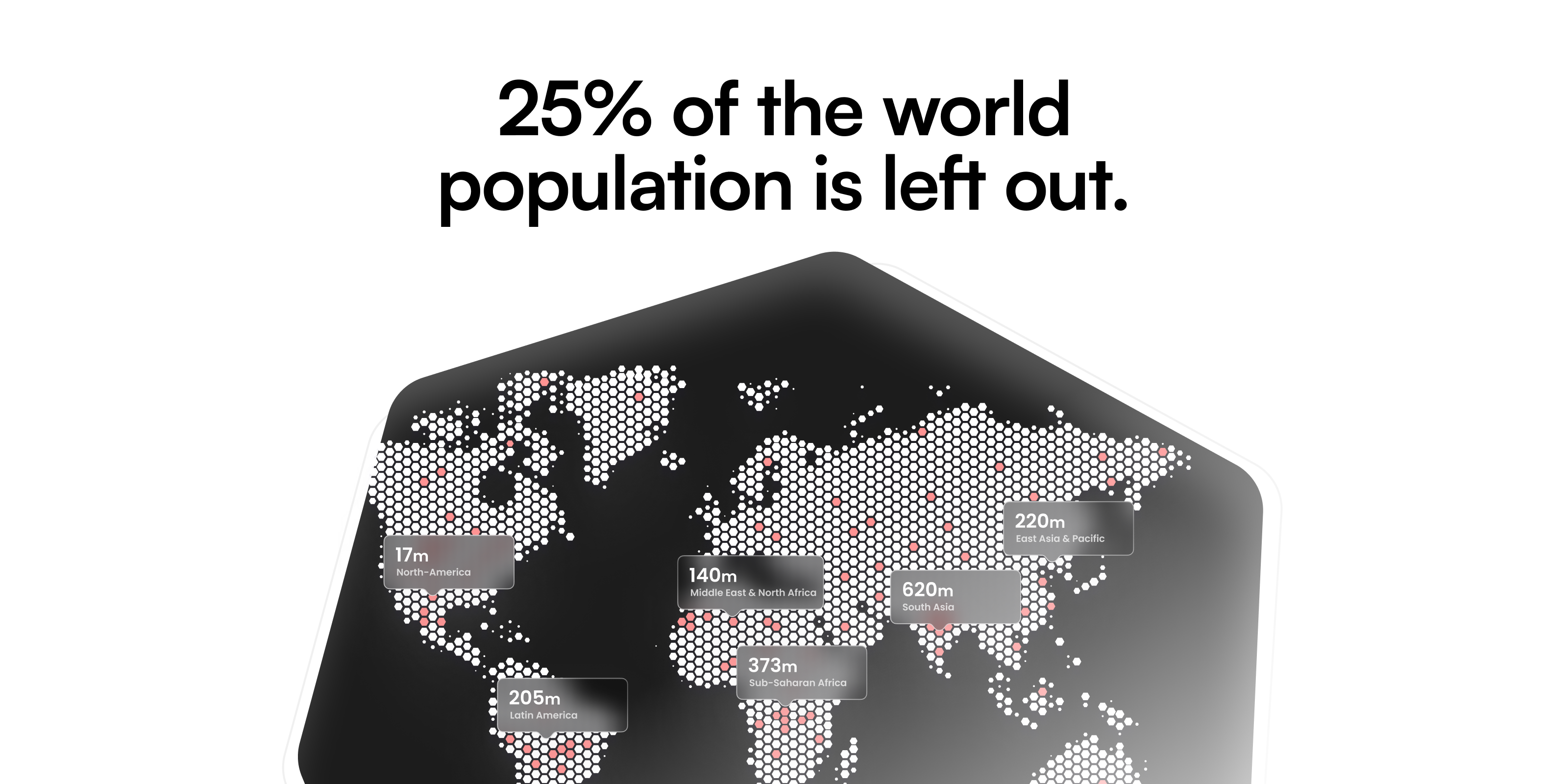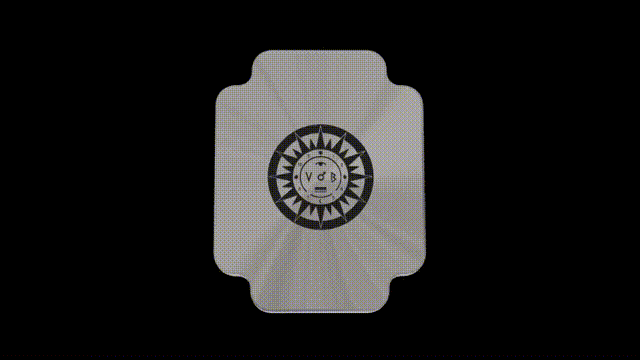Imagine you're a hardworking individual, miles away from your homeland, tirelessly building a better life for yourself and your loved ones back home. Every month, a portion of your hard-earned income is carefully set aside, destined to cross borders and oceans, a lifeline for those you hold dear. However, the remittance process is often a frustrating and costly ordeal, with traditional players taking a substantial cut, leaving you with less to share.
The Current Landscape of Global Payments
In the realm of global payments, one of the biggest challenges users face is the high cost and inefficiency associated with international money transfers. Traditional banking systems often impose exorbitant fees, making it difficult for individuals, especially those in emerging markets, to send money across borders. Moreover, the user experience for cross-border transactions can be cumbersome, with complicated processes and limited accessibility.
This is the reality for millions of migrants worldwide, particularly in regions like Africa and Latin America, where remittances play a vital role in sustaining economies and supporting families. But what if there was a better way? A more efficient, secure, and cost-effective solution that puts the power back into the hands of those sending their precious earnings across the globe?
That's where we come in,
Charter Labs is introducing a revolutionary global stablecoin settlement solution that leverages blockchain technology and innovative approaches such as account abstraction and cross-chain bridging. Our mission is to provide a seamless, cost-effective, and accessible platform for global payments, enabling users to send and receive money across borders instantly and with near-zero fees.
Which parts of the world are we focusing on and why?

The African Region
Africa is witnessing a surge in remittances, fuelled by its rapidly growing population and increasing youth migration for better job opportunities. By 2050, Africa is projected to have the largest workforce globally, with a population expected to nearly double to
2.5 billion people.
The average cost is around 7.9% as of Q3, 2023. Africa also has the highest average cost globally for sending intra-region remittances, at about 13.8%. Bank-based remittances in Africa were the most expensive, with fees of nearly 16%, while money transfer operators averaged 6.2%. Still, demand is high: In 2023, remittance flows into Africa grew by 12.1% CAGR in 3 years and reached $100.1 billion.
While official figures show 15 million Africans residing in the US, UK, and EU in 2020, unrecorded estimates suggest the number could be as high as 28 million in 2024. With its burgeoning youth population and increasing migration trends, Africa presents a significant untapped market for secure digital payment products to disrupt the costly and inefficient traditional remittance channels.
The Latin American Region
Shifting our gaze to Latin America and the Caribbean, we witness a region that has experienced a remarkable surge in remittances. In 2022 alone, the region saw a record-breaking $145 billion in remittance inflows, with Mexico leading the way, receiving a staggering $61.1 billion – a 12.9% increase from the previous year.
But the numbers only tell part of the story. The World Bank estimates unrecorded flows through informal channels could be at least 50% larger than recorded flows. This untapped informal market presents a significant opportunity for secure digital payment products like ours to transition these transactions into formal channels, fostering transparency and efficiency.
Moreover, as employment in sectors where migrants traditionally work – such as food and beverage services, health services, and construction – continues to rise in the US, we anticipate a corresponding increase in remittances to Latin America. The region is in dire need of a secure, efficient, and cost-effective solution for these hard-working individuals to send money back home and we’re here to help them!
The Genesis of Charter Wallet
Recent advancements in blockchain technology have paved the way for innovative solutions that can outperform traditional payment systems regarding user experience, security, and cost-efficiency. At the core of Charter Wallet is our commitment to making financial transactions fair and accessible to everyone, particularly those in underserved regions like Africa and Latin America.
Smart Accounts
The core innovation behind Charter Wallet is the shift from standard Externally Owned Accounts (EOAs) to Smart Accounts. Unlike EOAs, which are controlled by a single private key, Smart Accounts are non-custodial wallets that can implement complex logic and access control mechanisms, providing security features akin to traditional finance making them a better fit for mainstream adoption, while remaining fully decentralised.
Charter's modular wallet stack uses zkSync's native implementation of Account abstraction. We prioritised the ease of user onboarding through the support of secp256r1 curve/ P256 precompile for enabling passkey support with Biometrics/FaceID for transaction signing and authentication.
We’ll release a detailed blog on our wallet key management for an in-depth overview. Charter wallet handles the key generation through the Secure Enclave (a hardware-based key manager that’s isolated from the main processor of the consumer’s device to provide an extra layer of security). The private key gets stored in the Secure Enclave and the encrypted version is stored in the OS, eliminating the possibility for any third party to access the keys. Passkey leverages secure enclave’s security and we employ passkeys as an authentication model.
Some of the additional core services provided by the Charter Wallet include:
-
Multi-currency accounts with minimal processing fees (less than 1%) for international payments, significantly lower than traditional processors (3-6%)
-
Near-instant cross-border settlements in USDC/ EURC or 60+ other Fiat currencies, eliminating large delays
-
One-step onboarding paired with the safest key generation methods (Secure Enclave/Hardware Security Module) for maximum security
-
User-friendly wallet recovery through email or trusted guardians
-
For a gas-less experience, we support paymaster features, allowing you to pay gas fees in any ERC20 token or we could cover your gas fees
-
One Account, multiple chains - We’re chain abstracted, the end user wouldn’t even know which chain they’re on and we offer swift and cheap access to liquidity in any chain
The Cross-Chain Challenge
The future of blockchain requires modular, cross-chain solutions for enhanced liquidity and throughput. However, by design, the canonical paths between Layer 2 (L2) and Layer 1 (L1) solutions are slow and expensive. End users ultimately desire to secure value storage in L1 alongside cheap, fast transactions in L2. However, traversing these canonical pathways for L2 interactions using L1 assets results in an "unusable" crypto UX, hence why chain abstraction infrastructure is vital for consumer crypto adoption and intent-based architecture is the best way to engineer it.
Chain Abstraction and Intent-based Architecture
To tackle this, we are currently working on chain abstraction which reduces the friction of sending assets across these in-protocol paths away from the users. This enables cross-chain value transfer and intent execution, instant bridging and atomic arbitrages.
A superior intent-based architecture would inherit a more reliant solver network and increased liveness (another topic another day) coupled with ERC 7683(cross-chain intents), which Charter Labs is also actively researching.
The Journey Ahead
Reflecting on the past year, I can confidently say it has been the most accelerated change I've experienced while building this product. A million iterations of ideas, concepts, and approaches, until we landed on the right one. It took us months to get the idea lifecycle right, but we've stayed true to one important principle: keeping our product user-centric.
At the heart of Charter Wallet is our commitment to making financial transactions fair and accessible to everyone. By strategically focusing on Africa and Latin America, we aim to tap into their growing remittance markets and positively contribute to their economies, shaping a more equitable global financial system.
This is just the beginning of our journey. As we continue to evolve and innovate, we invite you to join us in democratising global payments, one transaction at a time.
— Charan, CTO and Co-Founder of Charter Labs
Few Research References:
https://remitscope.org/africa/
https://www.thedialogue.org/blogs/2024/02/migration-and-remittances-an-outlook-for-2024/
https://blogs.worldbank.org/en/peoplemove/remittances-latin-america-still-growing
https://www.statista.com/outlook/fmo/digital-payments/digital-remittances/worldwide
https://remittanceprices.worldbank.org/sites/default/files/rpw_main_report_and_annex_q122_final.pdf




评论 (0)